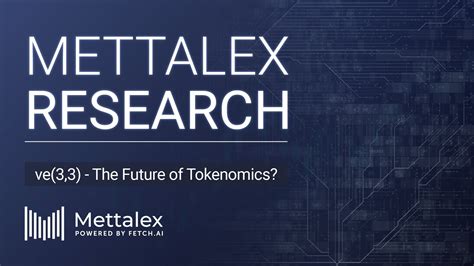Future tokenomics: observations with algorand (algo)
When the world is heading towards a more decentralized and driven blockchain, the concept of tokenomics is becoming more and more important. Tokenomics is a study of how tokens are used, distributed and managed in various applications, including cryptocurrencies such as Bitcoin and Ethereum. In this article, we will delve into the world of algorandu (Algo), examine its unique approach to tokenomics and examine the implications for the future of cryptocurrency.
What is tokenomics?
Tokenomics refers to the study of how tokens are created, issued, distributed and used in various blockchain -based applications. It includes concepts such as supply and demand, toke distribution models, voting systems and management structures. In the tokenized system, each token unit has a specific function or case of use that can be treated as a token “task”.
Challenges of traditional tokenomics
Traditional approaches to tokenomics are often based on complex mathematical models and systems based on rules, which can lead to inefficiency and unintentional consequences. For example:
- Supply of tokens: In traditional tokenized systems, tokens are often issued with specific restrictions or amounts that may reduce growth potential.
2.
- Management structures: Traditional management models often rely on centralized decision -making processes that can lead to conflicts of interest and undermine trust.
ALGORRAND unique approach
In response to these challenges, Algorand (Algo) has developed a unique approach to tokenomics, which priority treats simplicity, performance and decentralization. Here are some key aspects of algo tokenomics:
- supply of tokens: The maximum supply of algo is limited to 50 billion tokens, ensuring that the protocol remains decentralized and resistant.
- Voting system:
Algo uses a distributed management system, enabling all stakeholders to participate in decision -making processes through safe, anonymous voting mechanisms.
- Decentralized Management:

Algorndem management structure is aimed at promoting transparency, security and honesty, with many layers of decentralization, ensuring that no individual unit will maintain control.
Benefits of algo tokenomics
By adopting a decentralized approach to tokenomics, Algorand has created a more efficient, safe and user -friendly ecosystem. Some key benefits include:
- Increased adoption: Promoting transparency and security, the structure of algo management attracted a wider range of users, programmers and investors.
- Reduced centralization: Decentralized management model reduces the risk of centralization, because decisions are made by a diverse group of stakeholders, not a single entity.
- Improved performance: by eliminating complex voting systems and supply limits, ALGO has enabled faster and more efficient decision -making processes.
Future directions of tokenomics
Because the algornd still develops and expands its ecosystem, the future of tokenomics will probably be shaped by several key trends:
- Decentralized finances (DEFI): As DEFI applications are becoming more and more popular, we can expect further acceptance of decentralized management models in cryptocurrency.
- Standardization of tokens: The development of standardized tokens and blockchain protocols will facilitate the creation of more complex and efficient toxicated systems.
- Interoperability: The growing use of blockchain -based solutions for interaction between the chain and interoperability can lead to new possibilities of tokenomics innovation.



Geef een reactie